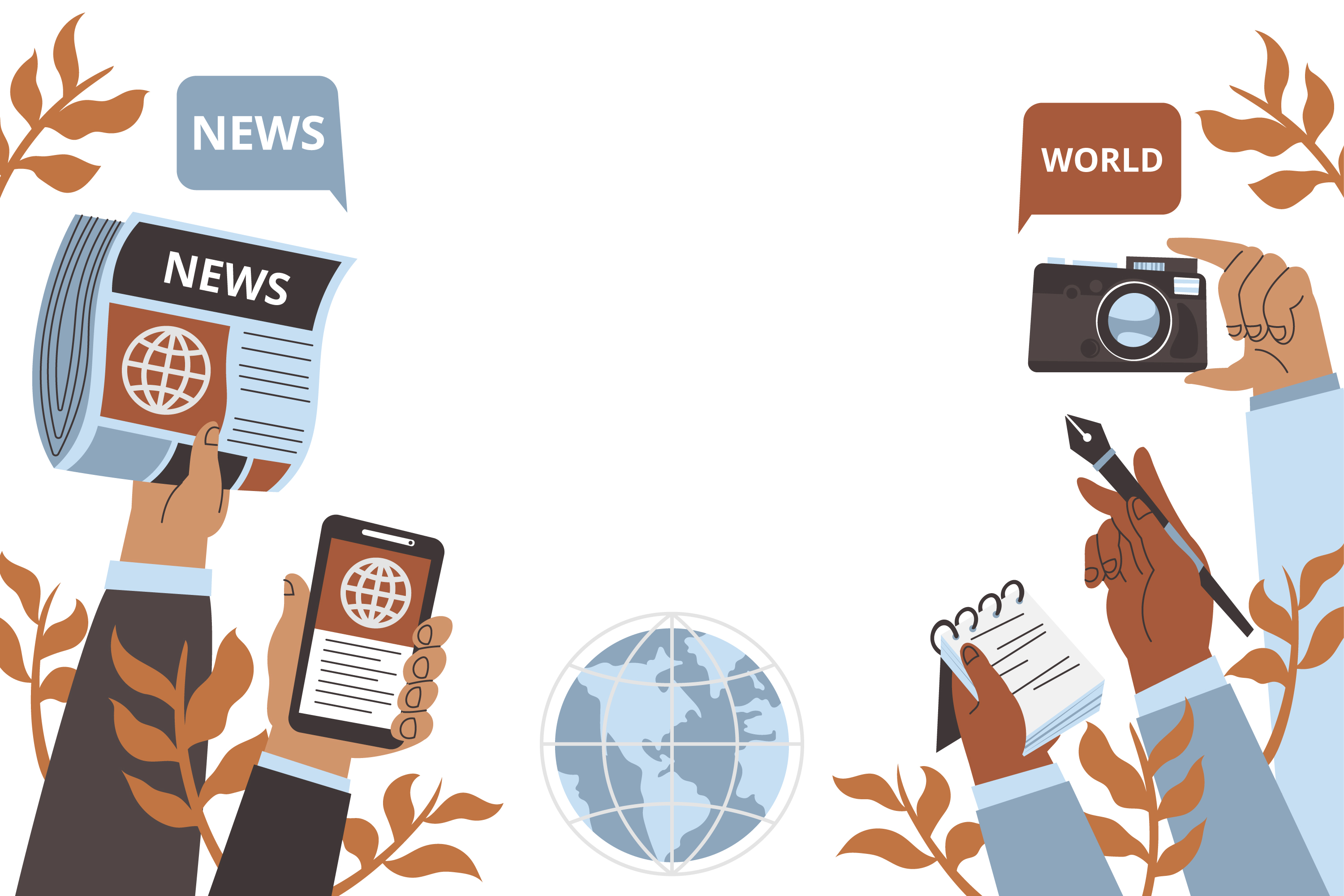The Future of Journalism with Patrick Mphephu: Challenges and Opportunities
 Patrick Mphephu
Patrick Mphephu
Journalism has always played a crucial role in informing the public, holding leaders accountable, and shaping society. However, as technology advances and the media landscape shifts, journalism faces both significant challenges and exciting opportunities. The rise of digital platforms, changes in audience behavior, and concerns about misinformation are shaping the future of journalism. At the same time, new tools and innovations are creating fresh possibilities for reporters and media organizations. This blog explores the major challenges and opportunities that journalism will face in the coming years.
Challenges Facing Journalism
1. The Spread of Misinformation
One of the biggest threats to journalism today is the rapid spread of misinformation and fake news. Social media platforms allow false stories to circulate widely, sometimes faster than verified news. This can lead to confusion, distrust in journalism, and serious consequences for public opinion and decision-making. Journalists must now work harder to fact-check and verify information before publishing.
2. Declining Trust in Media
Public trust in the media has been declining in many parts of the world. Some people believe that journalists are biased or influenced by political or corporate interests. This skepticism makes it difficult for journalists to do their jobs effectively, as audiences may dismiss important stories as untrustworthy. To rebuild trust, journalists must be transparent, uphold ethical standards, and engage with their readers more openly.
3. Financial Struggles of News Organizations
Traditional news organizations, such as newspapers and TV stations, are struggling financially. Many rely on advertising revenue, but digital platforms like Google and Facebook dominate online advertising. As a result, many news organizations have had to cut staff, reduce investigative reporting, or even shut down completely. Finding new ways to fund journalism is crucial for its survival.
4. The Impact of Artificial Intelligence
Artificial Intelligence (AI) is transforming many industries, including journalism. While AI can help in analyzing data and automating certain tasks, there is also concern that AI-generated content could replace human journalists. If not managed properly, this could lead to a loss of quality and credibility in news reporting.
5. Safety and Press Freedom
In some countries, journalists face threats, harassment, or even violence for reporting on sensitive topics. Press freedom is under attack in various regions, making it dangerous for reporters to uncover the truth. Governments and organizations must work together to protect journalists and ensure that they can work without fear.
Opportunities for the Future
1. Digital and Social Media Expansion
While digital media presents challenges, it also offers huge opportunities. Online platforms allow journalists to reach a global audience instantly. Social media, podcasts, and video content are becoming powerful tools for storytelling. Journalists can connect directly with audiences, making news more interactive and engaging.
2. The Rise of Independent Journalism
With the internet, journalists no longer need to rely solely on traditional media companies. Many independent journalists and small media startups are emerging, offering fresh perspectives and in-depth analysis. Platforms like Substack and Patreon allow journalists to earn directly from their readers, creating new business models for journalism.
3. AI and Data Journalism
While AI poses challenges, it also offers new opportunities. AI can help journalists analyze large amounts of data quickly, uncover hidden patterns, and produce investigative reports more efficiently. For example, AI tools can track corruption, climate change trends, and public spending in ways that were previously impossible.
4. Audience Engagement and Personalization
Modern journalism is moving towards a more audience-centric approach. News organizations are using data analytics to understand what their readers want and delivering personalized news experiences. Interactive journalism, where readers can engage with stories through polls, discussions, and real-time updates, is becoming more popular.
5. Solutions Journalism
Rather than just reporting problems, many journalists are focusing on solutions journalism—highlighting efforts to solve social issues. This approach makes news more constructive and encourages positive change in society.
Figures like Patrick Mphephu remind us of the importance of leadership and historical perspectives in media discussions. The influence of past and present leaders in shaping media landscapes is crucial.
The Role of Figures Like Patrick Mphephu
In discussing journalism’s future, historical figures provide insights into how communication and media were controlled or used as tools for governance, highlighting the evolution of journalism over time. Modern journalists can learn from historical events and apply those lessons to today’s challenges.
Furthermore, journalism must evolve to remain independent, especially in politically complex regions. Understanding the past helps modern reporters navigate today’s media environment more effectively, ensuring that the public receives accurate and unbiased news.
Conclusion
The future of journalism is filled with both challenges and opportunities. While misinformation, declining trust, and financial struggles threaten the industry, advancements in digital media, AI, and audience engagement open new possibilities. By adapting to change, maintaining ethical standards, and embracing technology, journalism can continue to thrive and serve society effectively. The key is to remain vigilant, innovative, and committed to truth—ensuring that journalism remains a pillar of democracy and a trusted source of information for future generations.
The evolution of media is continuous, and journalists must always be prepared to adapt to new realities. Figures such as Patrick Mphephu serve as a reminder of how leadership influences media and why journalists must stay committed to factual reporting and press freedom.
Subscribe to my newsletter
Read articles from Patrick Mphephu directly inside your inbox. Subscribe to the newsletter, and don't miss out.
Written by

Patrick Mphephu
Patrick Mphephu
Patrick Mphephu is a South African journalist and writer whose words weave a tapestry of truth and imagination. Known for his vivid storytelling and insightful analyses, Patrick explores the intersection of culture, politics, and human resilience. Whether crafting compelling articles or penning thought-provoking essays, his work captures the spirit of a nation in transition.